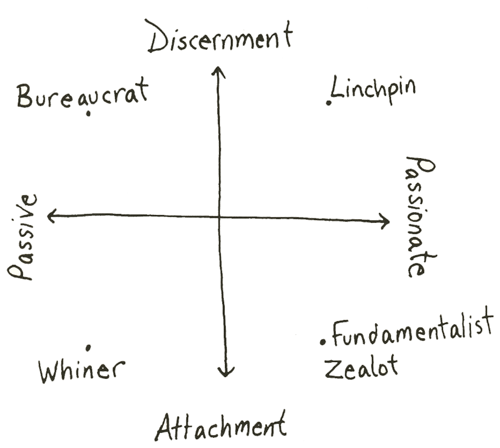Mark Ramsey has done another interview with Seth Godin that I highly recommend. Mr. Godin is promoting his new book, “Linchpin: Are You Indispensable?” I encourage you to listen to the interview. It isn’t long. Here are a few excerpts:
“…school was organized by the powers-that-be to turn the typical student into a compliant, quiet, sit-in-straight-rows, fill-in-little-circles-on-the-SAT, follow-the-path, go-to-the-job-you-get-at-the-placement-office kind of person. And there’s a reason for that: It’s that if you are the organization busy hiring people, the more people you have who want to do the jobs you’ve got, the cheaper you can get away with paying them. As a result, we’ve created a culture where a few people are able to drive the agenda and a lot of people end up working hard to fit in and have a lot of fear about doing anything but that.”
“You read about people who are making $80K, $90K, $200K a year as middle managers for Fortune 500 companies, and then they get laid off and can’t make $15,000 a year working at a 7-11, and the question I’d ask is: Where did the $70,000 worth of value go? Did the person change or just their income?”
“It’s a crisis because all these years that we were watching blue collar people lose their jobs, exported to China or wherever… All these years that we watched machines replace people on assembly lines, we just shook our heads and said that’s really sad but that’s not us, that’s them – good thing it’s not us. And now it’s us, now they’ve come for us.”
“Well, I think that broadcasters have now embraced the fact that spectrum is finally on its way to being valueless. It was an 80-year run, but there’s no intelligent person I know that says that in 10 or 15 years from now they are going to be glad they own 660 on the AM dial.”
“All those kids who are in school today, who are learning how to do the jobs of 1960 or 1970, they’re in big trouble. All those 40- or 50-year-old executives who are hoping they’re going to wait this thing out, they’re in really big trouble.”

